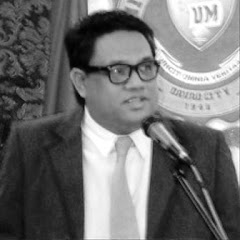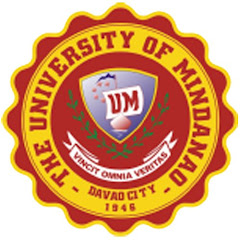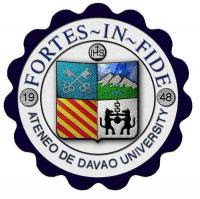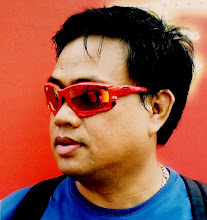Tuesday, July 28, 2009
Executive Privilege 101
A. The Supreme Court in Senate v. Ermita said: “Sections 2(b) and 3 of Executive Order No. 464 … are declared VOID. Sections 1 and 2(a) are, however, VALID.”
Q. What does the voided Sections 3 say?
A. It says: “All public officials enumerated in Section 2 (b) hereof shall secure prior consent of the President prior to appearing before either House of Congress to ensure the observance of the principle of separation of powers, adherence to the rule on executive privilege and respect for the rights of public officials appearing in inquiries in aid of legislation.”
Q. Who are the officials in Section 2(b) referred to in Section 3.
A. They are:
“Senior officials of executive departments who in the judgment of the department heads are covered by the executive privilege;
“Generals and flag officers of the Armed Forces of the Philippines and such other officers who in the judgment of the Chief of Staff are covered by the executive privilege;
“Philippine National Police (PNP) officers with rank of chief superintendent or higher and such other officers who in the judgment of the Chief of the PNP are covered by the executive privilege;
“Senior national security officials who in the judgment of the National Security Adviser are covered by the executive privilege; and
“Such other officers as may be determined by the President.”
Q. Are there any officials whom the President may prevent from testifying?
A. If the hearing is an inquiry in the exercise of congressional “oversight function” under Article VI, Section 22, Department Secretaries may not appear without the prior consent of the President. This is repeated in Section 1 of EO 464 which the Supreme Court declared valid.
If the hearing is “in aid of legislation” under Article VI, Section 21 of the Constitution, anyone, except the President and Justices of the Supreme Court, may be summoned.
Q. If the President cannot use EO 464 to block the testimony of officials enumerated in Section 2(b) above, can she still prevent testimony?
A. Yes, by claiming that the testimony being sought is covered by “executive privilege.”
Q. What is “executive privilege”?
A. It is the constitutionally recognized right of the President to withhold certain types of information from Congress, the courts or from the public.
Q. What types of information can be covered by executive privilege?
A. Section 2(a) of EO 464, upheld as valid by the Supreme Court, enumerates the following which are taken from earlier decisions:
1. Conversations and correspondence between the President and the public official covered by this executive order
2. Military, diplomatic and other national security matters which in the interest of national security should not be divulged;
3. Information between inter-government agencies prior to the conclusion of treaties and executive agreements;
4. Discussion in closed-door Cabinet meetings;
5. Matters affecting national security and public order.
Q. Who may claim executive privilege?
A. Only the President or a high official who, after consultation with the President, is authorized by her to claim the privilege.
Q. Must every claim of executive privilege based on the above enumeration be honored?
A. No. The Court in Senate v. Ermita said that in determining the validity of a claim of privilege, the question that must be asked is not only whether the requested information falls within one of the traditional privileges, but also whether that privilege should be honored in a given procedural setting. Thus it is not for one claiming executive privilege “to unilaterally determine that a duly-issued Subpoena should be totally disregarded.”
Q. Who then determines whether the claimed privilege should be honored?
A. The Court. Thus, for instance, when the Nixon administration claimed privilege for certain tapes about the Watergate break-in, the Court, after looking at the claimed privilege behind closed doors, held that the tapes were not covered by privilege and should be released.
For this reason, our Court also said that “Absent then a statement of the specific basis of a claim of executive privilege, there is no way of determining whether it falls under one of the traditional privileges, or whether, given the circumstances in which it is made, it should be respected.” The lack of specificity renders an assessment of the potential harm resulting from disclosure impossible.
Q. What was the opening sentence of the Court in its decision on EO 464?
A. “A transparent government is one of the hallmarks of a truly republican state.”
Q. The President has formed a legal team to study what to do with the appeal of the Bishops to abandon EO 464. What should they say?
A. They should say, “Madam President, read Senate v. Ermita and obey it and thereby begin the process of your salvation.”
In re: Executive Privilege
Senate vs. Ermita , GR 169777, April 20, 2006
FACTS:
This is a petition for certiorari and prohibition proffer that the President has abused power by issuing E.O. 464 “Ensuring Observance of the Principles of Separation of Powers, Adherence to the Rule on Executive Privilege and Respect for the Rights of Public Officials Appearing in Legislative Inquiries in Aid of Legislation Under the Constitution, and for Other Purposes”. Petitioners pray for its declaration as null and void for being unconstitutional.
In the exercise of its legislative power, the Senate of the Philippines, through its various Senate Committees, conducts inquiries or investigations in aid of legislation which call for, inter alia, the attendance of officials and employees of the executive department, bureaus, and offices including those employed in Government Owned and Controlled Corporations, the Armed Forces of the Philippines (AFP), and the Philippine National Police (PNP).
The Committee of the Senate issued invitations to various officials of the Executive Department for them to appear as resource speakers in a public hearing on the railway project, others on the issues of massive election fraud in the Philippine elections, wire tapping, and the role of military in the so-called “Gloriagate Scandal”.
Said officials were not able to attend due to lack of consent from the President as provided by E.O. 464, Section 3 which requires all the public officials enumerated in Section 2(b) to secure the consent of the President prior to appearing before either house of Congress.
ISSUE:
Is Section 3 of E.O. 464, which requires all the public officials, enumerated in Section 2(b) to secure the consent of the President prior to appearing before either house of Congress, valid and constitutional?
RULING:
No. The enumeration in Section 2 (b) of E.O. 464 is broad and is covered by the executive privilege. The doctrine of executive privilege is premised on the fact that certain information must, as a matter of necessity, be kept confidential in pursuit of the public interest. The privilege being, by definition, an exemption from the obligation to disclose information, in this case to Congress, the necessity must be of such high degree as to outweigh the public interest in enforcing that obligation in a particular case.
Congress undoubtedly has a right to information from the executive branch whenever it is sought in aid of legislation. If the executive branch withholds such information on the ground that it is privileged, it must so assert it and state the reason therefor and why it must be respected.
The infirm provisions of E.O. 464, however, allow the executive branch to evade congressional requests for information without need of clearly asserting a right to do so and/or proffering its reasons therefor. By the mere expedient of invoking said provisions, the power of Congress to conduct inquiries in aid of legislation is frustrated.





